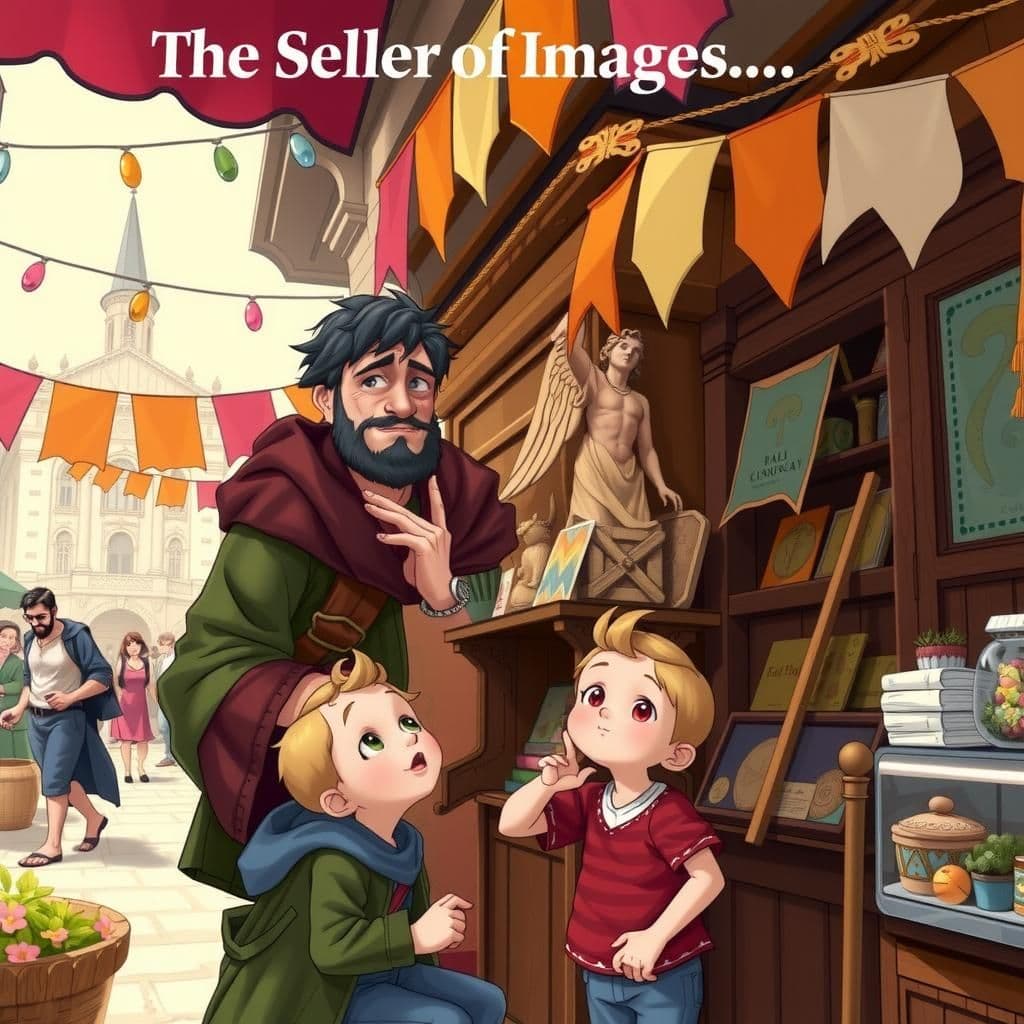The Seller of Images

Story Summary
In this culturally significant moral story, a man attempts to sell a wooden statue of Mercury, claiming it can bestow wealth and riches. When questioned about why he is selling such a valuable figure instead of enjoying its gifts himself, he explains that he needs immediate assistance, as the statue's blessings come slowly. This heartwarming tale highlights the theme of valuing immediate needs over long-term benefits, making it one of the best moral stories.
Click to reveal the moral of the story
The moral of the story is that immediate needs often outweigh the promise of future benefits.
Historical Context
This story echoes themes found in ancient Greek and Roman literature, where the figure of Mercury (Hermes in Greek mythology) symbolizes wealth and commerce. The narrative reflects the paradox of reliance on external sources for prosperity while revealing the human tendency to prioritize immediate needs over long-term benefits, a motif present in various fables and moral tales, such as those by Aesop. The story critiques the folly of seeking quick gains through superficial offerings, a common theme in both classical and later adaptations of moral lessons.
Our Editors Opinion
This story highlights the tension between immediate needs and the promise of long-term rewards, a dilemma still relevant in modern life where quick fixes often overshadow sustainable solutions. For instance, a person might choose to sell their investment in a promising startup for immediate cash, despite knowing that holding onto it could yield greater wealth in the future, illustrating the struggle between seeking instant gratification versus waiting for substantial benefits.
You May Also Like

The Wolf and the Babe
In the short story "The Wolf and the Babe," a famishing wolf eavesdrops on a mother threatening to toss her child out the window to silence him, hoping for a chance to feast. However, as the day passes, it is the father who returns home and discards both the mother and child instead. This engaging moral tale highlights the unexpected twists of fate and the simple lessons from stories about the consequences of neglect and cruelty.

A Hasty Settlement
In "A Hasty Settlement," an attorney proposes to reopen a concluded estate case after realizing there may be remaining assets, prompting the judge to reconsider the initial valuation. This concise moral story highlights the importance of diligence and the potential for overlooked opportunities, reminding readers that lessons learned from stories can inspire a deeper understanding of justice and fairness in seemingly settled matters.

The Man and the Wart
In "The Man and the Wart," a humorous tale with an impactful moral, a man with a wart on his nose recruits others into a fictitious order, claiming its membership is rapidly expanding. When another afflicted person pays to avoid joining, the first man shamelessly returns to demand monthly dues, highlighting the folly of exploiting others' insecurities. This funny story serves as a culturally significant moral lesson about honesty and the consequences of greed.
Related Collections
Other names for this story
Image Merchant, The Wealthy Statue, The Mercury Seller, Statues of Fortune, The Artisan of Riches, The Wooden Benefactor, Selling Illusions, The Statue Seller's Dilemma
Did You Know?
This story highlights the theme of human desperation and the irony of valuing wealth over immediate needs, suggesting that even those who claim to possess the means to prosperity may be struggling with their own financial woes.
Subscribe to Daily Stories
Get a new moral story in your inbox every day.